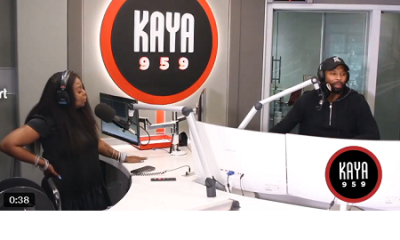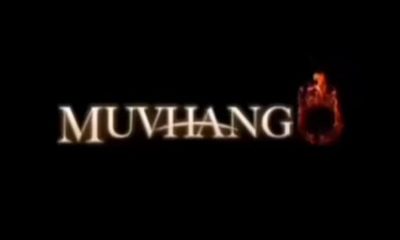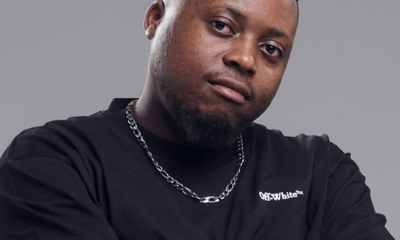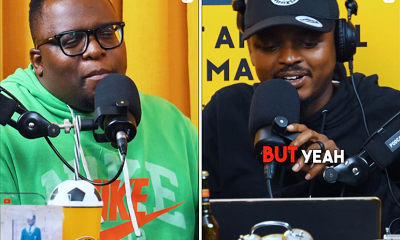News
Mayibuye Movement: Genuine New Hope or Another Pop-Up Party?
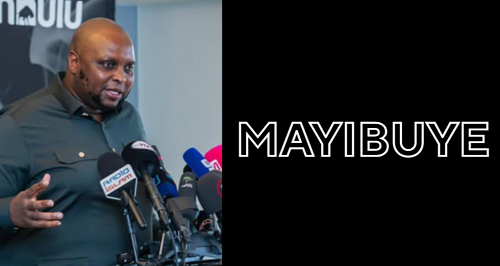
It’s no longer news that South Africa’s political landscape has always been dynamic and sometimes chaotic, but it seems the cycle of political rebirth is growing up. The latest entrant into the spotlight is Floyd Shivambu, former secretary-general of the uMkhonto weSizwe (MK) Party and one-time heavyweight in the Economic Freedom Fighters (EFF).
Now, Shivambu is testing the waters for a new political initiative called Mayibuye, claiming to offer an alternative for disillusioned citizens and defectors from other parties like the ANC, EFF, and MK. But the real question is: Is this Mayibuye movement a serious long-term vision, or just another pop-up party in South Africa’s overcrowded democracy?
The new party “Mayibuye” — a term deeply rooted in the country’s liberation history — is being positioned by Shivambu as a “people-powered movement” focused on addressing unemployment, crime, and land reform. His call for volunteers via WhatsApp has reportedly received overwhelming responses, and some notable political figures, like former EFF KZN leader Vusi Khoza, have thrown their support behind it.
In one of his statements, the former party leader revealed that the initiative is a democratic one, guided by consultation with the people. While no formal party has been launched yet, he is building the base for what could become a major political announcement ahead of the 2026 local government elections.
South Africa already has over 1,600 registered political parties — a staggering number, especially for a democracy where only a handful ever win parliamentary seats. Many of these parties were born from internal fights, ideology shifts, or personal ambitions, and most vanish after one election cycle.
Recent history has shown how easily public excitement can turn into disappointment. New parties often start with a splash, mobilizing disillusioned voters and promising change, only to collapse under the weight of infighting, lack of structure, or public mistrust. A typical example is Zuma’s MK Party which has already started seeing factions barley surviving just two years since its launch.
So far, Mayibuye feels familiar. It follows a pattern: The leader falls out with the current party, announces a “movement” instead of a party (at first), then uses grassroots messaging and social media, attracts defectors who are also disillusioned, and promises radical change before formally registering.
The difference between a genuine alternative and a pop-up platform lies in follow-through.
Floyd Shivambu isn’t new to political reinvention. Once a fiery voice in the EFF, he later aligned with the MK Party, where his leadership was eventually challenged and removed. Some supporters view his latest move as a natural evolution, a step away from stagnant or corrupt systems. Others see it as yet another political flip-flop, raising questions about loyalty, consistency, and ideological clarity.
His critics argue that Shivambu’s past affiliations and party-hopping may alienate serious voters. Trust is hard to earn in a political climate already drowning in broken promises.
What’s clear is that voter frustration is at an all-time high. Rising poverty, joblessness, crime, and corruption have pushed many citizens to the brink. They are hungry for change, but not desperate enough to fall for empty slogans anymore.
If Mayibuye is to succeed, it must present a clear and achievable policy vision, avoid being another protest party that fades post-election, build genuine grassroots structures in townships, rural areas, and cities, and show discipline, transparency, and strong leadership from the start. The movement must prove that it’s not just anti-ANC or anti-EFF, but pro-Solutions.
As the 2026 elections inch closer, expect more announcements like Mayibuye. The political space is fertile for alternatives, but voters are no longer easily swayed.
Mayibuye could become a platform for real representation and policy innovation. But it could just as easily join the graveyard of short-lived parties built on hype, ambition, and WhatsApp groups.
South Africa doesn’t just need new parties, it needs new politics that is transparent , that have a clear sense of direction, and people-driven policies that work. Whether the new party, Mayibuye, becomes a genuine movement for change or another recycled political brand will depend not on slogans, but on structure, service, and sincerity.

